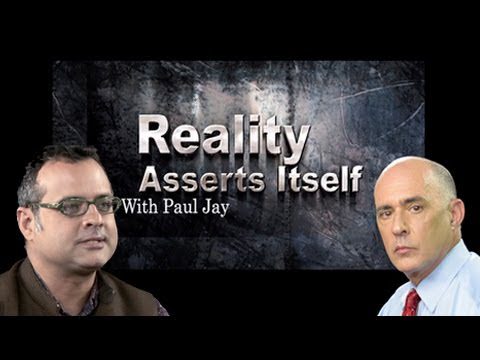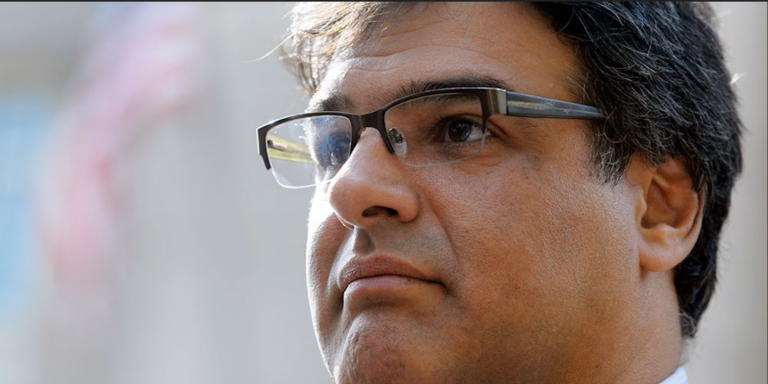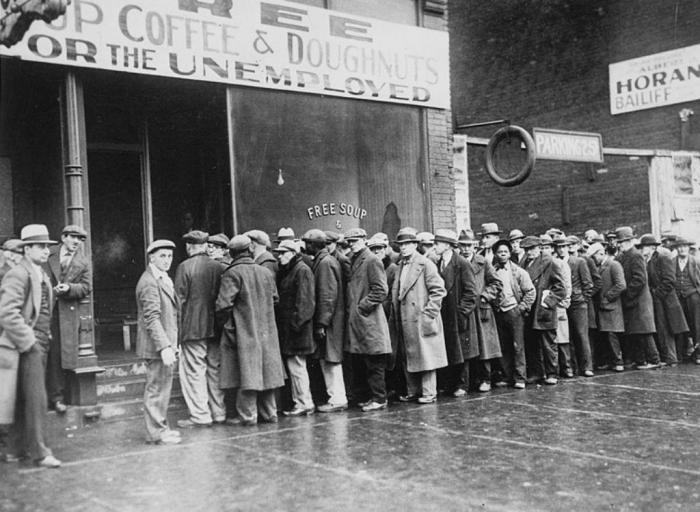Vijay Prashad talks about growing up in India and coming to the realization that liberalism could never eliminate poverty. This is an episode of Reality Asserts Itself, produced August 2, 2013, with Paul Jay.
STORY TRANSCRIPT
PAUL JAY, SENIOR EDITOR, TRNN: Welcome to The Real News Network. I’m Paul Jay in Baltimore. And welcome to another episode of Reality Asserts Itself.
As you may remember from our first episode, these interviews that I do on this series start with why my guests think what they think and a little less about what they think, and then we move into some of the more current issues.
So now joining us in Baltimore is Vijay Prashad, who’s quickly becoming one of the left’s better-known public intellectuals. He’s going to be the Edward Said Chair at American University at Beirut this year. He’s the author of many books, including The Poorer Nations: A Possible History of the Global South, The Darker Nations: A People’s History of the Third World, and Arab Spring, Libyan Winter. He also regularly writes for The Hindu, Frontline magazine, and CounterPunch.
Thanks very much for joining us.
VIJAY PRASHAD, PROF. INTERNATIONAL STUDIES, TRINITY COLLEGE: Thank you.
JAY: So I’m very intrigued these days with the issue of identity, and not so much about identity politics, but more about when people think of themselves, like I say I am and then you fill in the blank. It could be I am Paul Jay or I am and I fill in a nationality. In my case it’s a dual citizenship, and frankly I couldn’t care less. But people fill in I am, I am. But that I is very much a cultural product and a product of your experience. But as soon as we start learning language, we’re learning the words filled with the assumptions of the culture we’re brought up in. I mean, it could be as simple as the word cup, but sometimes you’ll learn just the word cup and its functionality, but somebody might even explain to you that someone had to work to make a cup, and you get the concept that people work. Many people, that isn’t part of their cultural experience, but more important words like princess or words like father and the rest, and you’re kind of brought up with–most people, brought up with the, you know, official narrative. And the main assumptions of whatever society they’re brought up in becomes part of I, my identity, and people think of it as that’s who I am, although so much of it isn’t from their experience; it was transmitted to them.
So to start with, like, if you fill in the blank, you know, Vijay Prashad, I am (fill in the blank), what do you start with?
PRASHAD: Well, I mean, it’s not an easy answer, because nobody is one thing. It depends on who’s asking me, what the context is. You know, my assumption is going to always change in that context.
But who am I? I’m an Indian. I was born in Calcutta. I grew up for most of my childhood in India. I came to the United States. I’ve become part of the diaspora. You know, I’m a Marxist. That’s my political horizon. You know, I think of myself as an intellectual. I think of myself as somebody who’s boring enough that anytime I’m confronted with anything, I want to find out, you know, where did that come from, why do you think this. You know, that’s why intellectuals are basically irritating people, because they don’t like to take reality as given. And so these–.
JAY: One hopes intellectuals are like that.
PRASHAD: Well, yes. I mean, okay, let me put it this way. This is the kind of way that I understand my journey, my intellectual journey. It’s become very much a part of who I am. So if somebody asks me, you know, what are you, well, of course, I’m a father. What are you? Well, of course, I belong in a family. And in my family, which is an enormous and very loving family, I have a role in there where I’ll never ever become my age. You know, you’re always a young person to older people. These are the frameworks in which I live.
JAY: Now, it’s not that normal these days when people fill in the blank to talk about class. I think it used to be more. Like, certainly if you were born into an aristocratic family, you might be proud of that and say so. If you’re born into royalty, of course, you’d be more than happy to say that. But for the working class, too, I think it used to be, you know, I’m a worker, I come from the working class. A lot of that is not so much part of most people’s–certainly ordinary people’s identity anymore, although it certainly is their experience. But you were born into affluence, and you were quoted somewhere as saying, you know, I came to Marxism sort of against my own interests because I was born into affluence. So talk a bit about that.
PRASHAD: Yeah. I mean, my family is an intellectual family. My grandparents were not wealthy people. You know, they were government officials or they were–one of my grandfathers studied snails, translated books from Persian and Turkish. These were intellectuals. You know, that’s the background.
My father was a very larger-than-life character, and he was in his 20s when India became independent. And he seized that opportunity. You know, he went into industry. He went into government as well, was very much in the position of I want to build this new nation. You know, he was obsessed with the Japanese. He had this idea that if the Japanese could make something of Japan, what’s wrong with India? What’s wrong with Egypt? You know, what’s wrong with Indonesia? These were his touchstones, these countries. So I grew up in a family where–.
JAY: And what did he do?
PRASHAD: So my father was an industrialist. You know. And at the same time, he worked for the Indian Mining Association. He worked for the coal–. He had government jobs, he worked in industry, went back and forth, you know, as those kind of nationalists did. You know, they understood their private sector work as part of a national project.
And so I grew up in a family where we didn’t want for anything. We lived in Calcutta, a great cosmopolitan city, but also a city filled with inequalities. And, you know, at the same time, I was raised in this world where the idea was one doesn’t make money only for your personal reasons, but you have to build this sort of national, you know, society. So it was–that was the basic framework of, you know, my childhood was that we’ve got these large dreams, but we didn’t want for anything. You know. And there was no point in my own childhood where I felt deprivation.
JAY: Okay. But the expectations of who you were going to become, were they in your father’s footsteps? I mean, you were going to be rich, you were going to be an enlightened industrialist then. I mean, that’s the path you were supposed to be on.
PRASHAD: Oh, absolutely. I mean, the path was that you have to also contribute towards this, you know, development of India. And this development of India was exactly in that light, that you have to enrich herself, but at the same time the nation has to grow. And these were not neoliberal people. You know, they didn’t believe that you have to line your pockets and damn the world. So in that sense it was affluence, but it was affluence of a liberal kind. And I grew up therefore with a very strong liberal, you know, tolerant environment.
But I found in my teen years that liberalism is a great ideology, but it’s grotesquely limited.
JAY: Okay. Define the liberalism you’re talking about.
PRASHAD: The liberalism I’m talking about is basically the following. There are poor people in the world. There are two things we need to do for the poor people. One is we have to create employment for them. So we have to set up another factory or set up some kind of, you know, mechanism to employ people. Those who cannot be employed, two or three times a year we’ll gather old clothes, we’ll buy some blankets, we’ll collect books, and we will personally go into a slum area and deliver them to the poor. This was the character of our liberalism. This is the environment in which I grew up in. You know, we would go and hand out books to people, we would go and give blankets, and we’d say, this is how you solve the problem of poverty. Or my father would say the way you solve it is you find a way to employ people.
And, you know, at one level, looking at it from today’s perspective, from the neoliberal era, where even the idea that it’s the responsibility of people to create jobs or it’s the responsibility of people to actively do good works, those have disappeared.
JAY: But even if you go back to the pre-neoliberal era–and I actually want to get a bit into this whole use of neoliberalism, because, just as an aside, it’s like neoliberalism bad, if only we could get back to the good old days of just straight capitalism, as if, you know, World War I, World War II, and terrible poverty were the good old days.
But when I was in India, I was struck, and I guess only ’cause of the scale of the thing, meaning the hundreds of millions of people in abject poverty, that there’s a kind of blinder in this liberalism you’re talking about that, you know, you give a little bit of money on the street, you do something towards the poor, and then you can kind of live your life. And, I mean, I had heard–and this is, like, 15 years ago, I guess, 20 years ago when I was there–there’s something like 300 million Indians living at a very good standard of living, perhaps, you know, more or less equal even to a, you know, Western European type of standard of living [incompr.] 700 million, 800 million people living abject poverty, and there’s a kind of blinder. Maybe it’s the same blinder that Canadians and Americans have towards native people living on reservations in abject poverty or some of the terrible poverty in the urban centers. You just don’t see it anymore.
PRASHAD: It’s impossible to expect people who grew up in an environment to immediately understand the contradictions. After all, this is all they know. You know, if I was–as when I was a child in Calcutta, I would walk out of my house and there’d be a slum right in front of me. It’s not even that we lived in a house and the sLum was removed to, you know, ten miles away. It was right in front of me. It was right there. In fact, we could look out of my window, and just around the bend was a large slum. It’s not that it’s–you can’t grow up and think immediately, intuitively, you know, by yourself that this is unjust.
JAY: Especially when you’re essentially told, directly or indirectly, well, this is the way the world is.
PRASHAD: This is the way the world is. For everybody who’s–even a child growing up in the slum, they see this is the way the world is. It requires a certain education. It requires a set of experiences to transform what you see before you into a politics. You know, it’s not the case that people who were born on the other side of the tracks, a young boy or girl born in the slum at the same time as I was born into this house, would have immediately an understanding of deprivation, of injustice. You know. They might also see it as the writ of the world.
And so politics neither for the affluent nor for the deprived is a natural process. It requires a certain understanding, a certain–.
JAY: So how does that come to you? I mean, you get this kind of liberal thing, yes, poverty’s bad, we wish it was better, hopefully someday we’ll have so much industrialization, modernization will alleviate poverty someday in the future; for now we’re going to kind of be blind to it. So how do you get from there and your encounter with Marx–but other experiences, obviously. What starts to change your view?
PRASHAD: The more you interact with people from a different class background–and that was one of the advantages for me. The more I interacted with people from a different class background, the more I understood the actual character of their lives. They were not stereotypes to me. You know, I would befriend people because the slum is right there, and I could understand and see directly that their lives have a different tempo. And it didn’t feel right. But I didn’t have a good way to–and nobody has a good way as a child to simply understand, oh, this is the issue.
You know, for me, it came many years later. I mean, serendipitously, my school, every year, the Soviet booksellers used to arrive.
JAY: Give us the decade or the years.
PRASHAD: This was in the early 1980s. So the Soviets would show up and they would lay out their wares. Now, as a very small child I read children’s books published by progressive publishers.
JAY: Really fast, just for some of the younger people in the audience and other people who might forget, just let me say this quickly. If I’m wrong, you can correct me. India had this interesting position in the world in the ’80s and before where they’re kind of playing footsie with the Russians, footsie with the Americans, and it wouldn’t be unusual to see Soviet-published books of Marx and walk down the street and see an American movie, and both were contending within India.
PRASHAD: Oh, absolutely. I mean, it’s not just in India, actually. In much of what was then the Third World, the Soviets had a very large soft-power project of, you know, inundating societies with books in various languages. You know, they had a very large translation service. When I was a small child, we used to get lavishly produced Soviet books, stories about–you know, fantasy stories about the Red Knight and the Blue Knight, etc.
JAY: Maybe some fantasy stories about how Russia implemented Marx, too.
PRASHAD: I think these were from Russian folktales, and these were not political. At least–I shouldn’t say that, actually, because a scholar might have done an analysis and shown the hidden communist ideology in the Russian folktales as they were being redone. But anyway, they also produced for us very inexpensive editions of Russian classic fiction, and, of course, Marx’s writings.
JAY: So you wrote this thing that–I asked you ahead of time what were sort of big moments for you and what changed your thinking, and you started to read Marx and it, quote, blew your mind. So what was it, and what blew your mind?
PRASHAD: Well, Marx is interesting, because, firstly, I had never read a writer who wrote, you know, with such incredible passion, both anger–you know, he had immense anger for things around him–but he also wrote this anger what I now would say scientifically.
JAY: And what age are you at?
PRASHAD: I was about maybe 14 when I first started reading Marx. I bought my three volumes of Capital in 1981, and I started to read it, couldn’t understand very much. But fortunately I also bought some of his political writings, which are much more filled with verve [incompr.]
And The Communist Manifesto was one of the first texts which I just couldn’t put down. I mean, the tempo of it, the extravagance. You know, it’s an extravagant book. It starts with this great image, you know, of the specter haunting Europe. And then you have almost goblins in it coming out, you know, from the netherworlds to do things, and, you know, capital is almost a beast in this story. You know, it’s like later I remember reading Victorian fiction and, you know, reading some poetry, European poetry, and it has a great poetry in it. S
o that text, The Manifesto, really was superb. I mean, I had never really read anything like that that was political, emotional, highly charged text, and imaginative, you know, because they’re speculating. They write about something that how would they know was going to happen. This I didn’t, of course, know reading it. I had no teachers to guide me. I read this accidentally.
But before Marx really took hold of my imagination, one of the books I bought from Progress Publishers was a book by Tolstoy called Resurrection. And it’s a book that’s very rarely read now. But it really affected me deeply, for a simple reason. The story is about a prince, somebody from an elite background who visits a relative and in the visit rapes or has some sort of sexual encounter with a servant. It’s not clear in the novel whether it’s consensual or–what is consent, after all? But it’s–they have sex. And this woman–then the servant is pregnant, and her life from that minute falls apart.
Now, what’s amazing about the novel Resurrection is that this prince is the best kind of person, and he tries his best to help her. In fact, at one point she is sent off to the Gulag. You know, the tsar’s courts condemn her to Siberia. And he rides his horse alongside the Gulag train, you know, as they are walking in their caravan, and he wants to help, and she keeps telling him, get out of my life, because you can’t help me.
And what that novel–you know, and of course he can’t help her. But what that novel demonstrated to me very powerfully, much more powerfully than, you know, English fiction, much more powerfully, was the futility of even the best liberal person. You know, you just–your good intentions just cannot help you get out of the mess that the world is in. That really affected me deeply, that however well-intentioned you are, however many blankets you hand out to people, however nice you are to people of different class backgrounds, your personal good sense, your personal character is not going to help us transform the hideous atrocities that happen in the world, and often the hideous atrocities that happen because of things we do, not knowing that we’re doing something hideous.
JAY: Okay. That could lead some people to conclude, well, you just can’t do any change, so I might as well just look after myself and my family and my career, and the hell with the rest, ’cause that’s just the way life is. So in part two of our interview, we’re going to talk about that, because that’s not the conclusion you came to. So please join us for the next segment of this series of interviews with Vijay Prashad on Reality Asserts Itself on The Real News Network.






